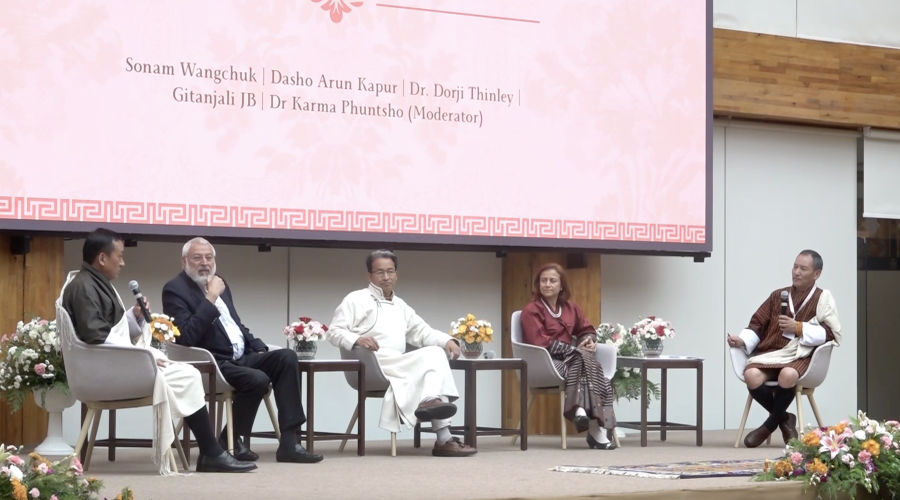 As the two-day GNH conference came to a close yesterday, speakers from Bhutan and beyond shared insights on aligning education, tech, and climate initiatives with core values such as community, happiness, and balance. From rethinking school systems to using AI to support local knowledge, the event offered practical and innovative ways to bring GNH principles into practice.
As the two-day GNH conference came to a close yesterday, speakers from Bhutan and beyond shared insights on aligning education, tech, and climate initiatives with core values such as community, happiness, and balance. From rethinking school systems to using AI to support local knowledge, the event offered practical and innovative ways to bring GNH principles into practice.
Education was one of the key topics. Speakers shared that students feel disconnected when learning ignores local culture and context.
“A child withdrawn from a community is not ideal. So, whatever we do, we have to make sure that the community and the child are connected even in an environment like a boarding school. We have to bring the community to the school,” said Dasho Arun Kapur, Director, Druk Gyalpo’s Institute.
“We need to think about addressing, through education, not just the activities that pollute, but the root cause, which is how we are groomed: to want more and more, and be less and less happy. That, I see, is a major challenge in education,” said Sonam Wangchuk, Engineer/Innovator, Ladakh, India.
“Understanding your own culture deeply without becoming parochial or fanatical and appreciating the beauty of other cultures is where we should train our kids to be,” said Gitanjali J B, Educationist, India.
Speakers also talked about the importance of “deep observation”, taking time to understand local patterns, materials and ways of life before making decisions. They said this approach leads to more meaningful and sustainable development.
Technology was also discussed as a tool that can help people connect, educate and empower people if designed to serve and not control communities.
“While we are quick to adopt digital identities, we must be careful not to undermine the privacy of our citizens, which is a constitutional right,” said Jigme Tenzing, Secretary, GovTech Agency.
“We must understand the provenance of knowledge and ensure it is maintained, embedded within AI systems, and appropriately controlled and monetised,” said John Crawford, Emeritus Professor, Sustainability and Complex Systems, University of Glasgow.
Later sessions focused on better ways to measure success. One idea was the ‘One Earth Balance Sheet’ – a village tool that tracks wellbeing, not just income, to guide balanced development.
Speakers said climate finance, carbon credits, and impact investing can support GNH by strengthening local leadership and resilience. The final panel said the Hindu Kush Himalaya can lead the world with climate justice, cultural wisdom, and nature’s rights.
The conference ended with participants from different countries and sectors reaffirmed commitment to turn GNH principles into action.
Karma Samten Wangda, Paro
Edited by Sonam Pem







